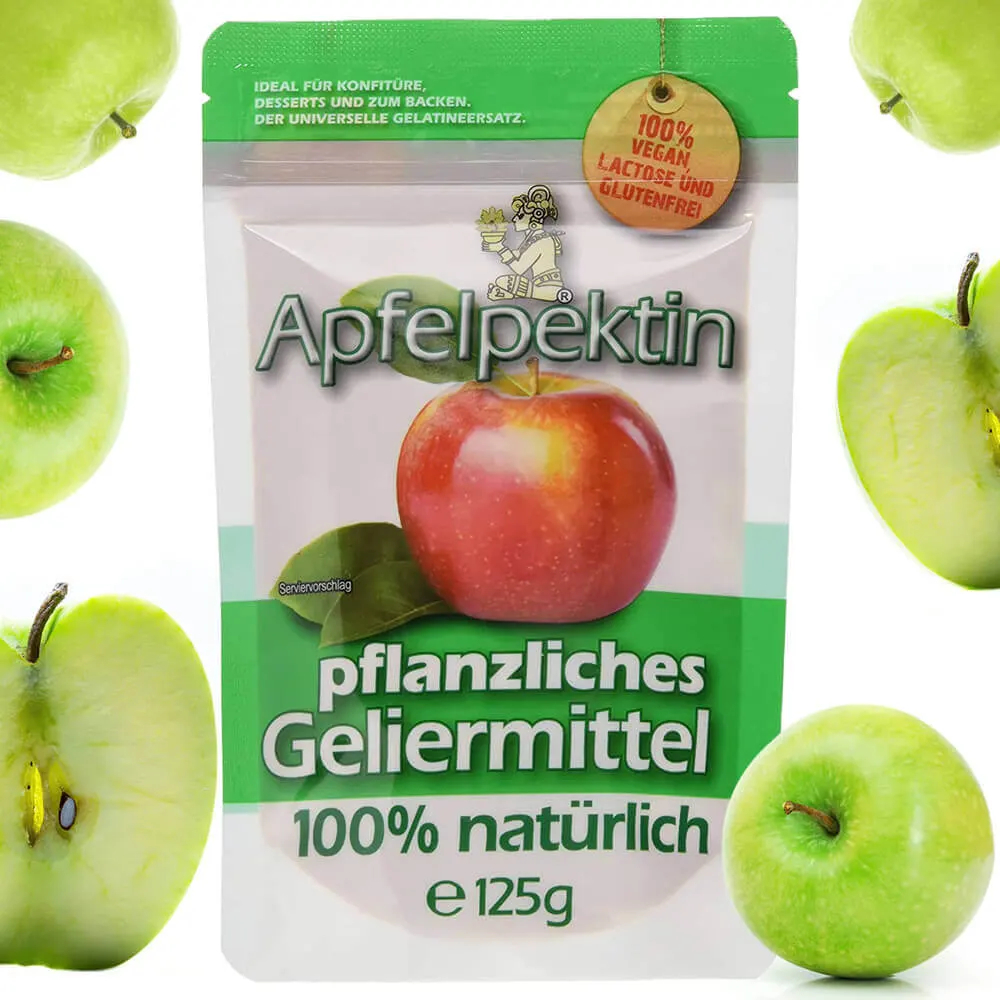What is apple pectin? What is pectin?
Pectin is extracted from fruit and is a soluble dietary fibre and natural component of every plant.
Pectin’s are found in plant foods such as fruits and fruits, especially in the peel and seeds. Apples and citrus fruits are particularly rich in pectin. The firmer and thicker the skin of the fruit, the higher the pectin content. Soft flesh, for example strawberries or mangoes, have little pectin. Pectin consists of long-chain carbohydrates, regulates the water balance and stabilises the cell walls in fruit and plants.
A solid gel forms when pectin comes into contact with water, sugar and acid (e.g., fruit acid). To give products the desired consistency, pectin is used in food production to make jelly, jam or fruit gum. As gelling agents, pectin’s belong to the group of additives (E 440).
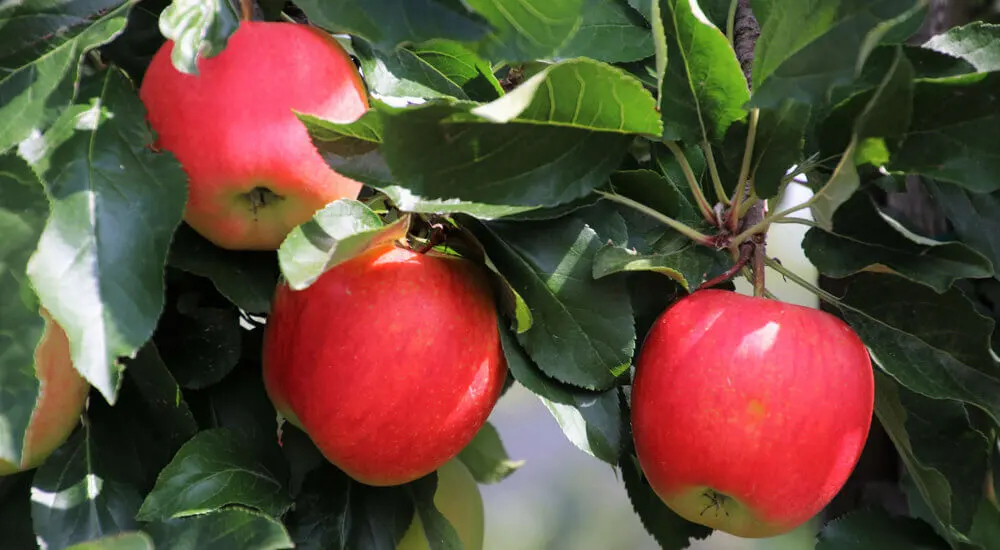
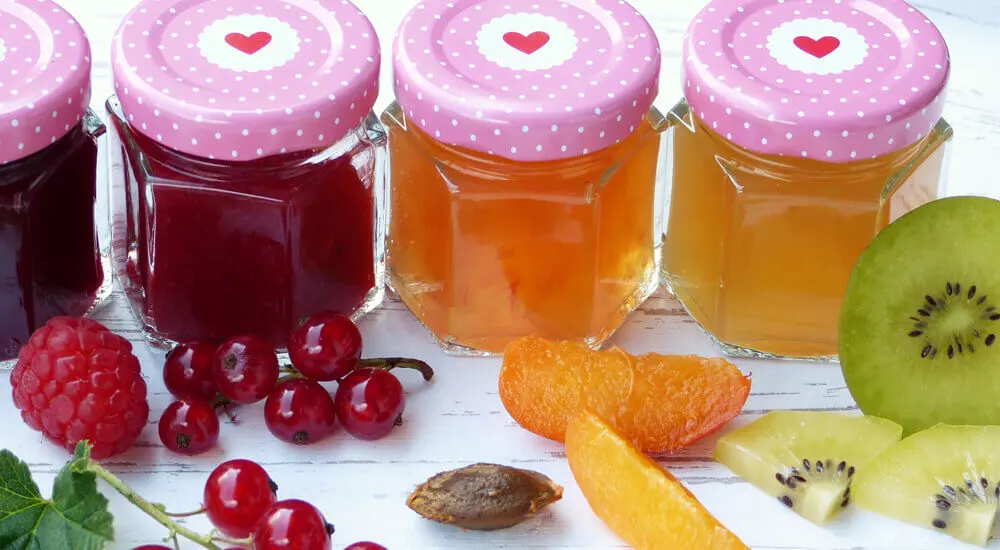
How is apple pectin made?
Pectin is obtained from dried apple pomace. This is the residue (the pulp, peel and seeds) that is left over when apples are pressed to make apple juice. Pectin can also be obtained from the peels of citrus fruits. The waste is thus put to good use. The pomace is then dried and the pectin is dissolved with the help of water. Ultrasonic extraction is another mild, non-thermal treatment to produce apple pectin or pectin.
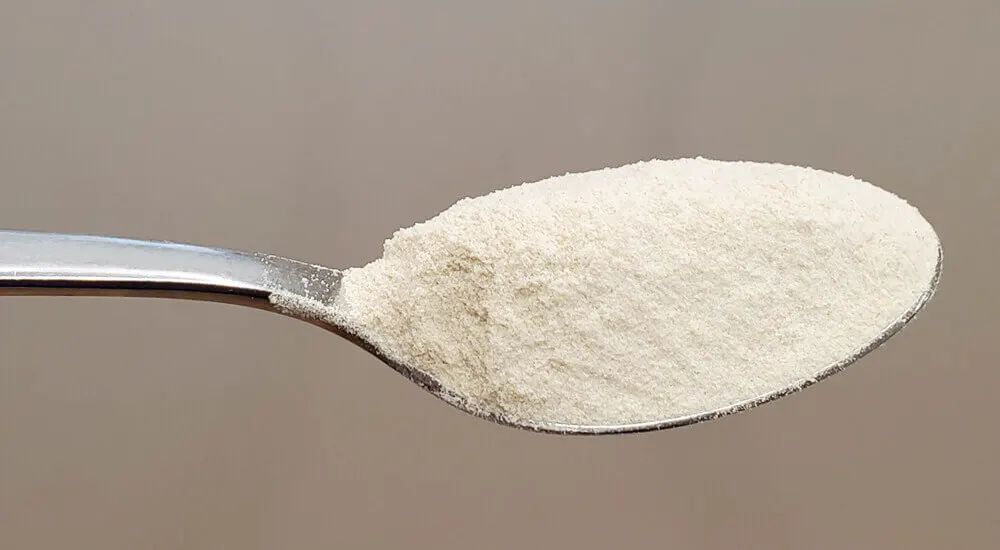
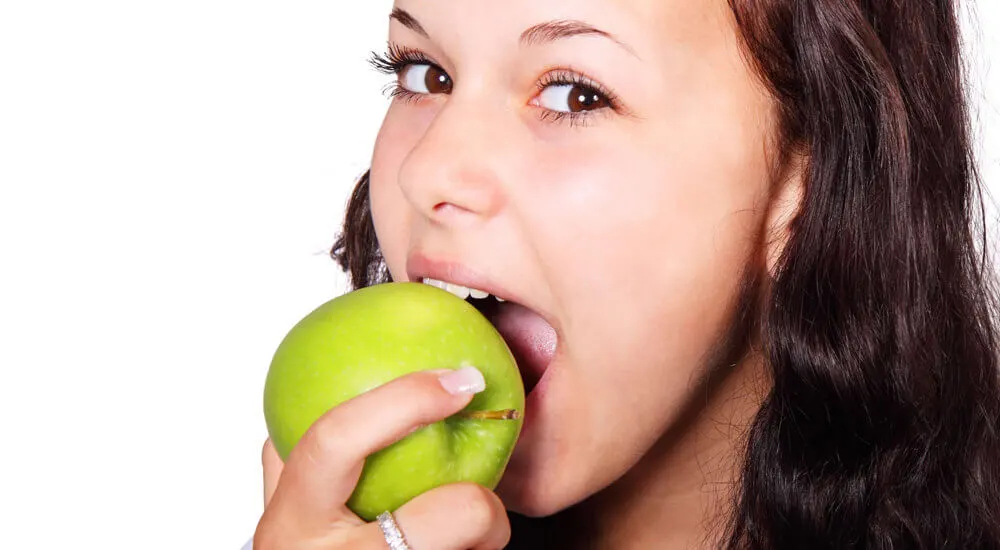
Pectin is an additive E440 also for organic products.
Gelatine as a gelling agent is also obtained from the connective tissue of various animal species. Many conventional foods, for example fruit gums, are made with non-vegan gelatine as a gelling agent! This gelatine is therefore not vegan.
The vegetable gelling agent pectin is therefore the vegan alternative for many consumers.
What is apple pectin suitable for?
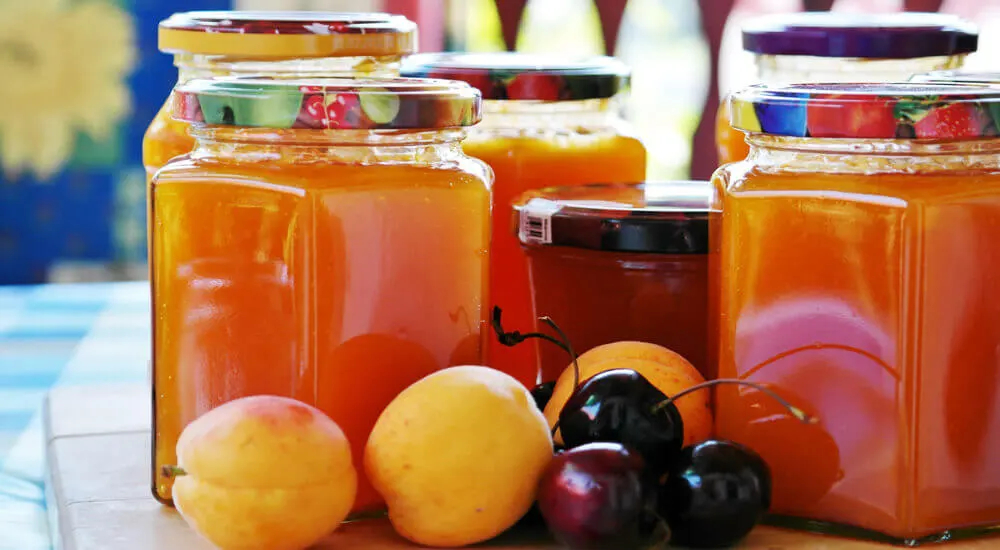

Apple pectin is used in the food industry as a vegetable substitute for gelatine. It provides the right consistency for jelly, jam, marmalade, milk products and soft drinks. But pectin is also used in vegan sausage alternatives and in numerous pharmaceutical products.
Pectin from apples is used especially for baked goods. The dietary fibre pectin is allowed for the production of organic products because of its harmlessness and innocuousness.
Interesting facts about pectin

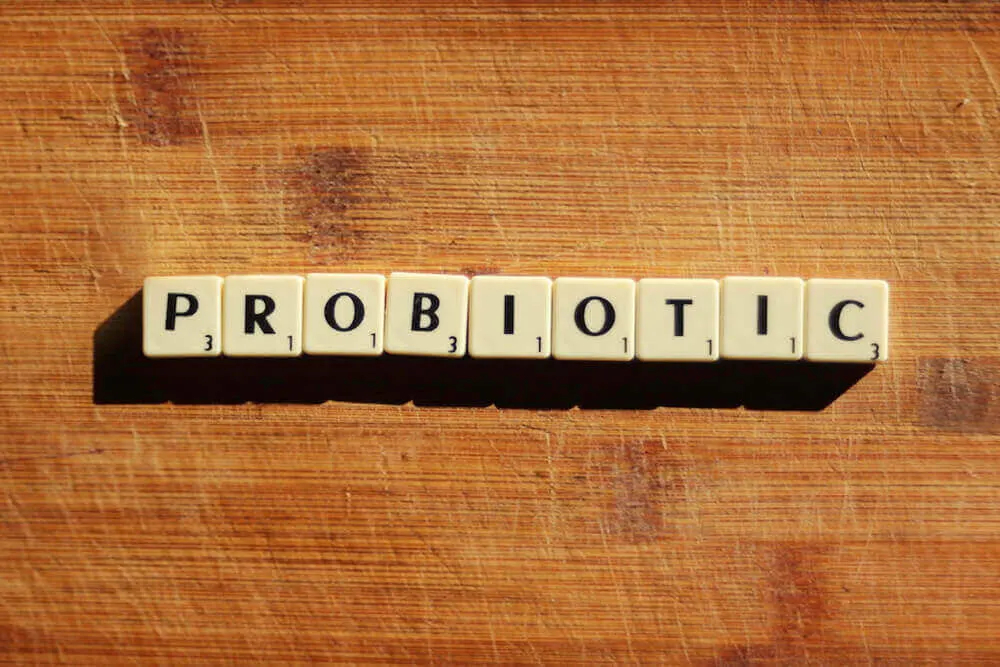
In the broadest sense, apple pectin is a dietary fibre and also has an effect on our intestines.
For the good intestinal bacteria, the soluble dietary fibres are food, such as the prebiotic inulin. If the microbiome (the community of bacteria) is healthy and strong, we feel good because the body is working well. Prebiotics help regulate bowel movements. For diarrhoea, the dietary fibre pectin helps, as does the well-known household remedy of grated apple.
In the intestine, apple pectin forms a gel-like protective layer on the intestinal mucosa. Toxins are bound and excreted and diarrhoea pathogens have less of a chance.
Can apple pectin lower blood lipid and cholesterol levels?
The water-soluble dietary fibres in apple pectin can lower cholesterol levels. Elevated cholesterol levels belong to the lipometabolic disorders and are also called hypercholesterolaemia. If the cholesterol level is too high, deposits form in the arteries.
The blood flow can be impeded by these deposits and, in the worst case, come to a complete standstill. This is called arteriosclerosis, which increases the risk of a heart attack or stroke.
Pectin has a cholesterol-lowering effect. Various studies have proven this in the meantime. The intake of 75 grams of dried apples daily leads to a drop in cholesterol levels of about 25 percent.
In addition, pectin’s have the ability to bind bile acid, which is excreted via the digestive system. Bile acid is necessary for the digestion of fats. By excreting it, the body needs new bile acid or cholesterol.
The blood fat level sinks because the existing, "surplus" is used up in the body. Another advantage is that pectin breaks down the bacteria in the intestine, producing short-chain fatty acids. The formation of new cholesterol in the liver is inhibited by these short-chain fatty acids.
Pectin’s have a positive effect on fat metabolism, the nervous system, sugar metabolism and the immune system. According to recent studies, a healthy and well-fed intestinal flora also influences our mood and our brain.
They form the building blocks of neurotransmitters such as dopamine, serotonin and GABA. GABA, a non-proteinogenic amino acid and an important neurotransmitter, is formed in the pancreas and brain.
About 100 million nerve cells are located in our abdomen and form the enteric nervous system. Via the vagus nerve, this nervous system sends signals back and forth between the gut and the brain.
Using pectin to lose weight?
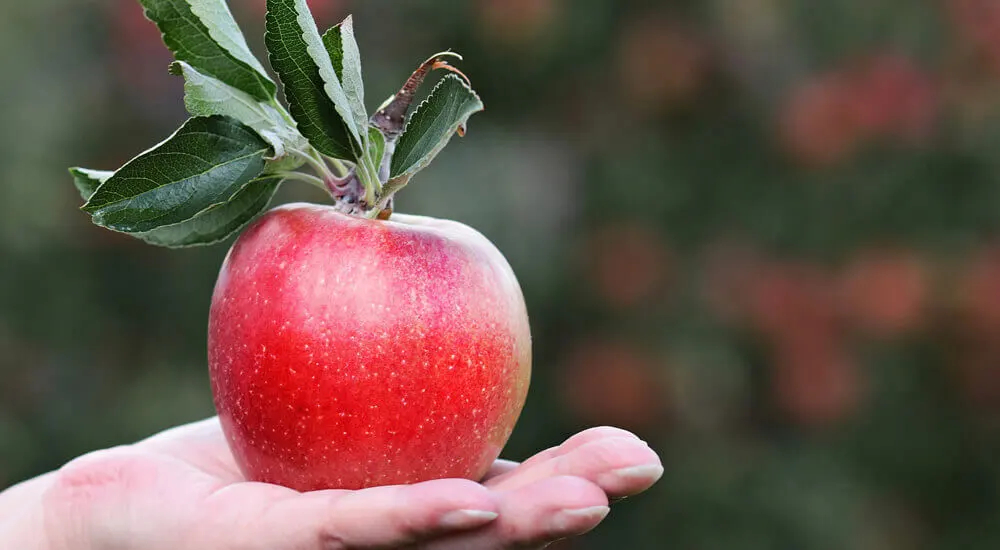
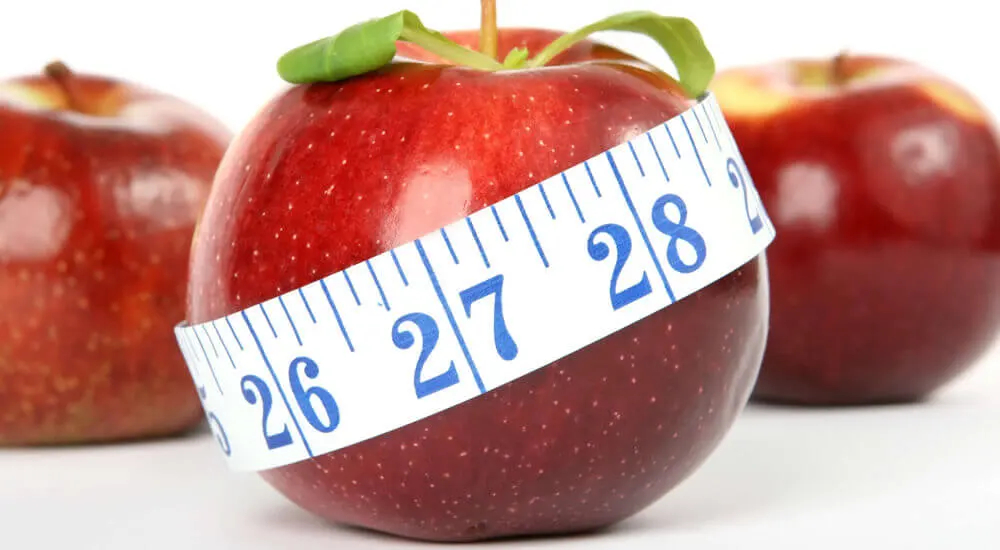
Pectin slows down the emptying of the stomach. As a result, we feel fuller for longer and cravings are less likely to occur. Since the dietary fibre pectin inhibits fat digestion, it increases fat elimination and can help with weight loss. Studies by the Los Angeles County University and the US Army have shown that pectin has no harmful effects.
In contrast, pectin has no harmful side effects compared to many conventional weight loss products. Instead, it regulates cholesterol levels, blood pressure and detoxifies the intestinal flora. When losing weight, however, one should not rely solely on apple pectin. It alone will not lead to the desired weight, but apple pectin can help. A healthy diet, plenty of exercise and sport as well as an adapted energy intake are further measures for healthy weight loss.Does pectin delay the absorption of minerals, medicines or vitamins?
Dietary fibres delay the absorption of active substances in minerals, medicines or vitamins. In the case of medicines, this applies to cholesterol-lowering drugs, cardiac glycosides, thyroid hormone L-thyroxine and especially painkillers. An interval of 2 hours should be kept between taking these medicines and apple pectin if you need to take them. As with all dietary fibres, it is especially important when taking pectin to drink enough fluids throughout the day.
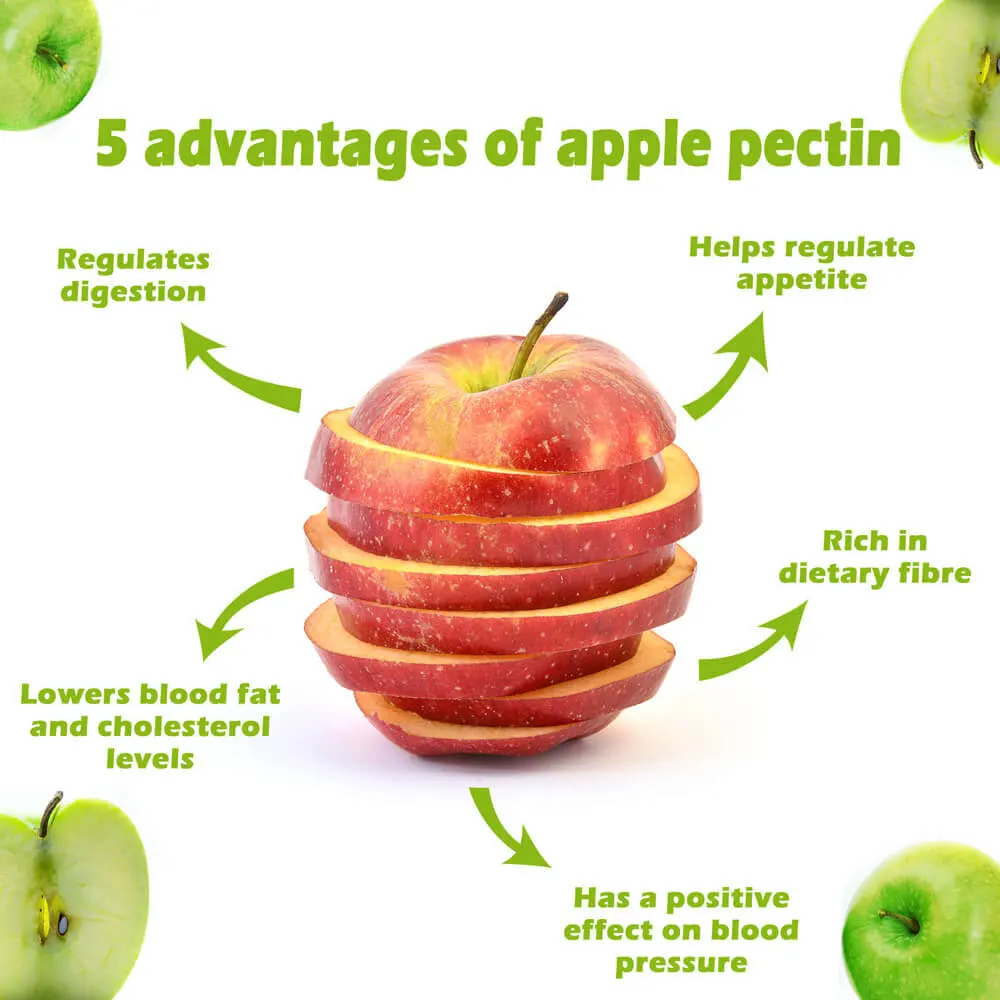
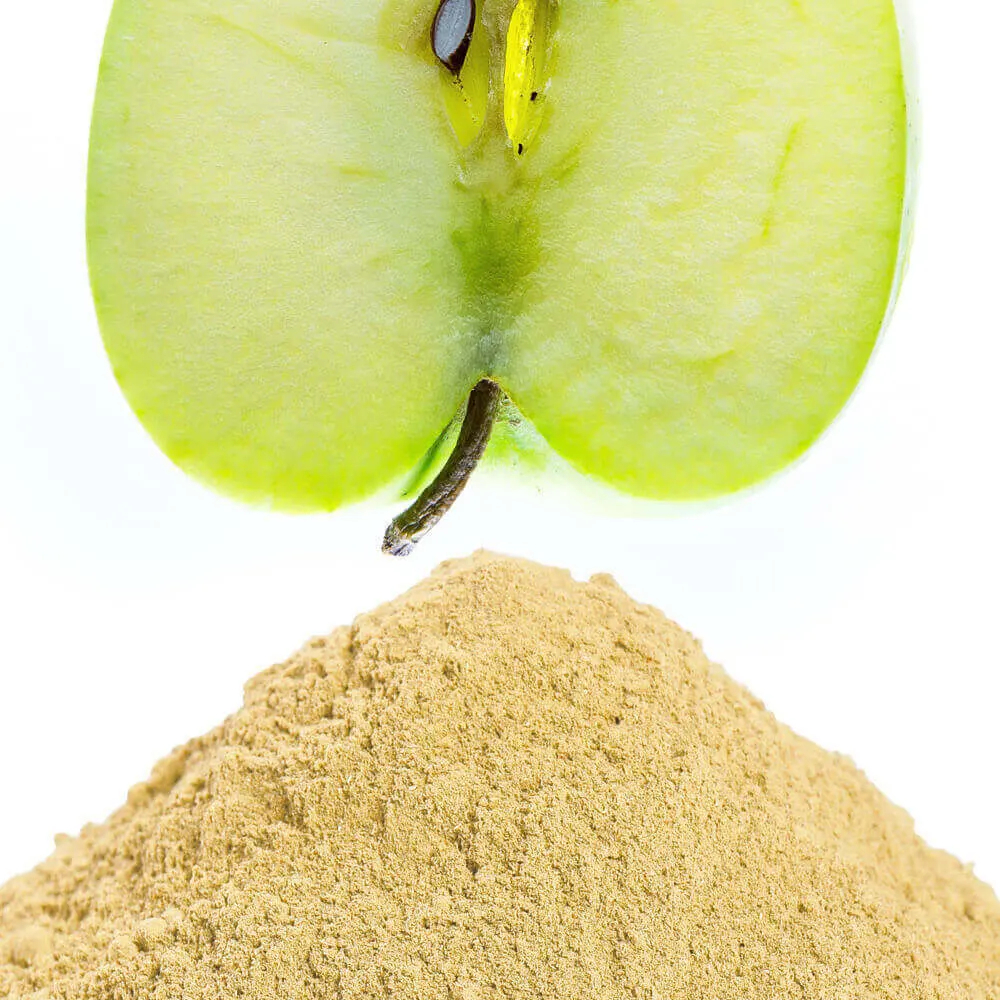
What are the advantages of pectin?
Compared to animal gelatine, pectin as a vegetable gelling agent is an ecological, more sustainable and animal-free alternative. The production waste, which is of vegetable origin (apple pomace), is thus usefully reused as pectin in the field of vegetable gelling agents.
Why not use ready-made gelling sugar?
Preservatives and even palm oil and a lot of sugar are often contained in ready-made jam sugar.
Rainforests are continuously being felled to build palm oil plantations because we as consumers use too much palm oil. Therefore, we should limit the consumption of palm oil wherever it makes sense in order to protect the rainforests. Gelling sugar does not need palm oil and it makes more sense to use apple pectin.
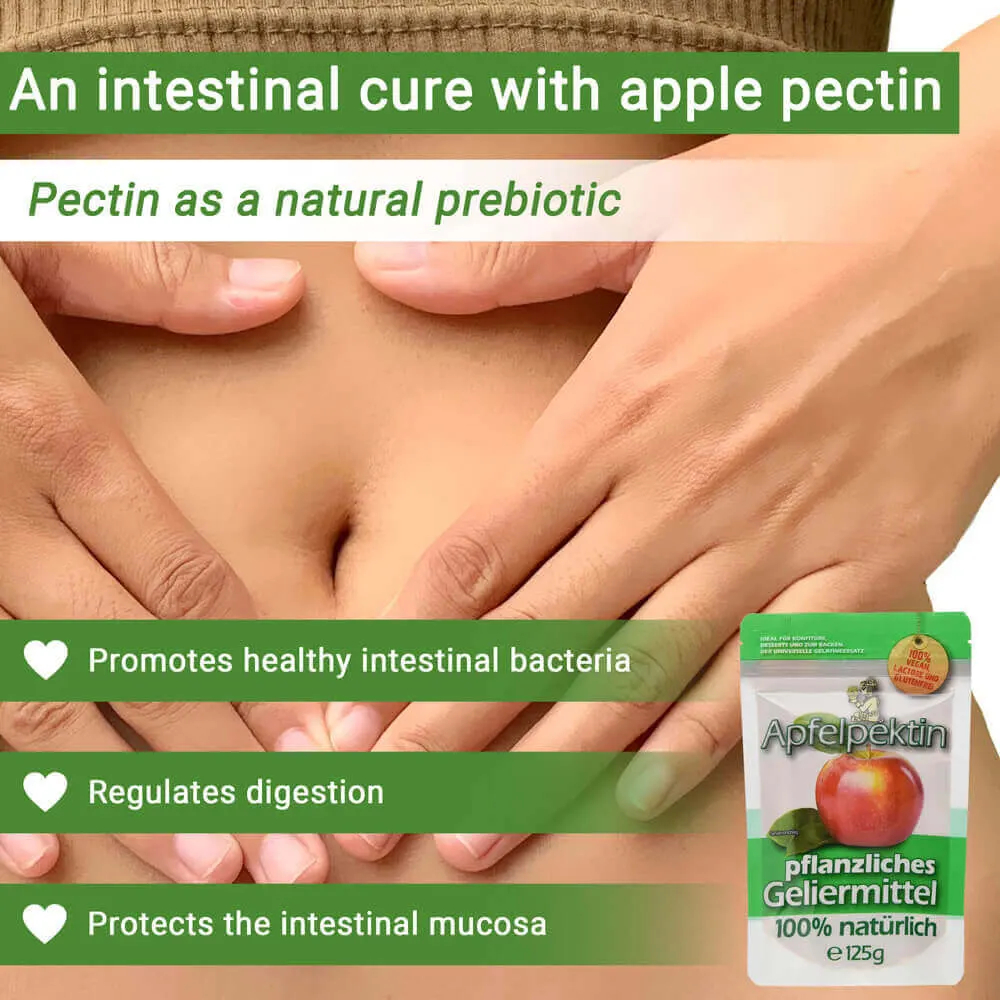
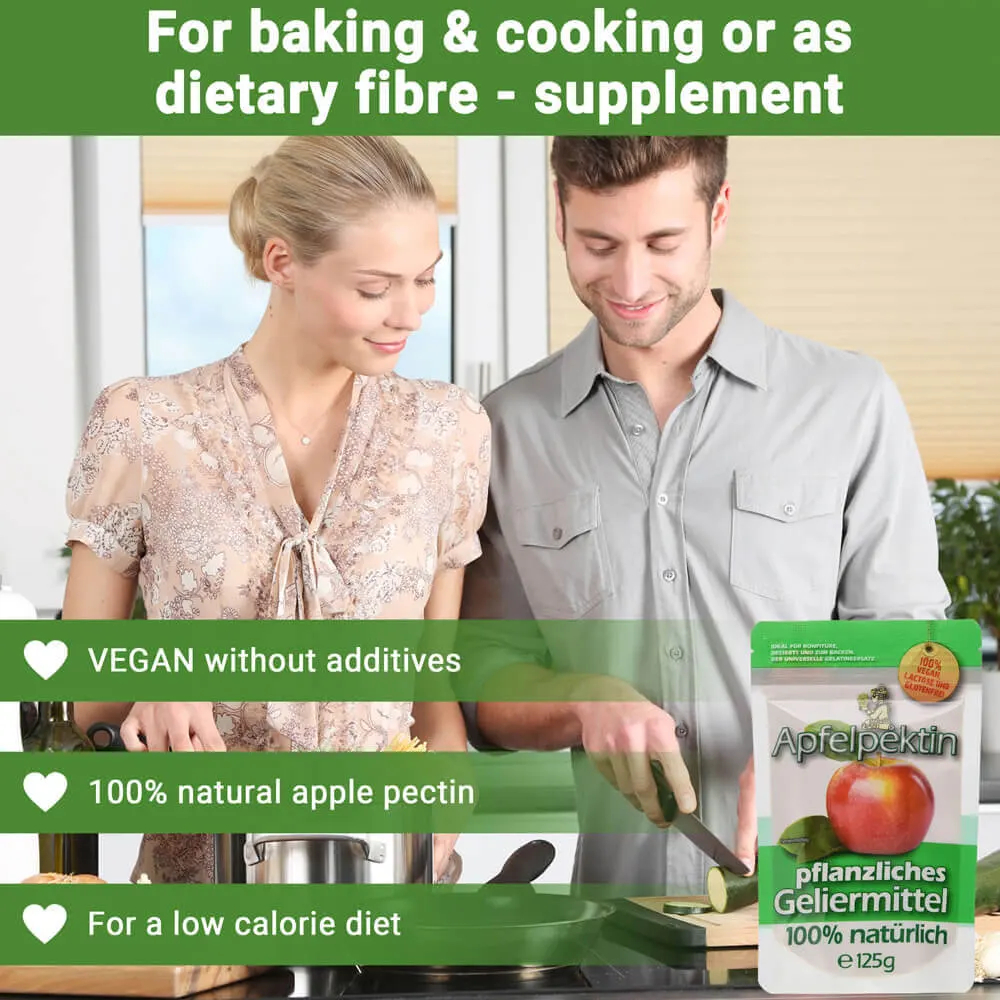
Buy the gelling agent apple pectin.
What you should know when buying apple pectin
When you buy our apple pectin, you get a vegan and effective natural gelling agent. Here's how apple pectin gelling agent works:
You need 15 grams of pectin powder per kilogram of fruit. For pectin to gel you need to add sugar or calorie-free erythritol. You can make your own jellying sugar using apple pectin powder. You can adjust the amount of erythritol or sugar according to your taste.
What is special about apple pectin powder
Pectin’s (polysaccharides) are found in many plants. Their property to bind gels is not only used in the food industry. It is also very practical in cooking. Apple pectin is suitable for a vegan diet because it is extracted from apples. Apple pectin is a very fine tasteless powder.
Our product is a low-esterified apple pectin (degree of esterification 38-44 %) without dextrose or other additives. 100% pure apple pectin produced in Germany from apples of European agriculture.

 German
German Dutch
Dutch French
French Italian
Italian Portuguese
Portuguese Spanish
Spanish

